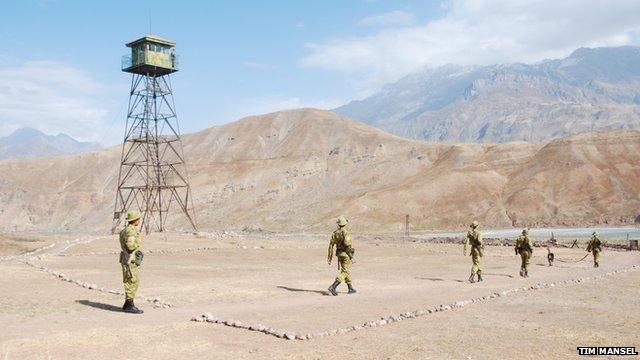Afghan farmers return to opium as other markets fail
- Published
Opium production has risen threefold in Helmand since 2006
Three times as much opium was produced in Helmand last year as when British troops went there in 2006, and a new UN forecast says that this year's crop will be even higher, external. Opium is the raw material for heroin, and most of the illegal drugs for sale on the UK's streets come from Afghanistan.
Like many other farmers in Helmand province, Hamidullah planted cotton last year, encouraged by British and American agricultural advisers.
But there was no market for it, and he planted opium poppies again this year.
"The price of cotton is very low," he said. "It does not cover the cost of production."
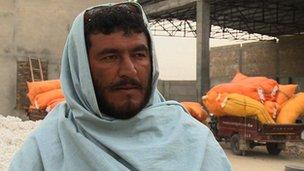
Hamidullah tried to farm cotton but says he was forced to return to planting opium poppies
He has been forced to sell off his cotton crop at a loss, a bit at a time, to feed his family. But he calculates that opium is ten times as profitable to plant.
Failure
Of the two large cotton ginning plants in Helmand, one lies idle, with acres of unsold cotton stored in a field next door.
Foreign agricultural experts have been trying to persuade Helmand's farmers to plant alternative crops for many years, but most schemes have failed.
A report by the UN's Office on Drugs and Crime (UNODC) forecasts an increase in opium production this year and says this has been partly caused by the lack of agricultural assistance. It also blames this "worrying situation" on insecurity.
As international troops wind down their combat role, the increase in poppy cultivation is a significant failure for the international project, and particularly the UK's role in it.
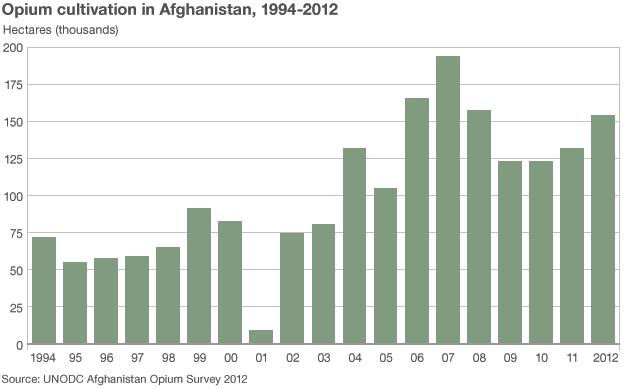
Most of the worldwide production of illegal heroin, the drug refined from opium, comes from Afghanistan, and the then Prime Minister Tony Blair cited this as a reason for the war in 2001, calling the drugs trade a part of the Taliban regime that "we should seek to destroy".
The UK took a lead role in counter-narcotics from the beginning, and sent troops to Helmand in 2006 partly because this was the largest area of poppy cultivation.
The UN report predicts that this year more than 75,000 hectares of land in Helmand is under cultivation for opium poppies, three times as much as in 2006 - and this is expected to increase.
Addict population
The new governor of Helmand, Mohammed Naeem, has introduced an extensive programme of eradication.
This involves workers going into an area under police protection physically to destroy crops and smash the wells which irrigate the land.
But when I visited Helmand in December, elected local councillors in the district of Nad Ali protested against the eradication programme as, without markets for other crops, the programme could impoverish farmers and drive them into supporting the Taliban.
The UN report calculates that about half of Afghan opium production will be in Helmand this year, but there is an increase elsewhere as well, including in areas such as Takhar and Nangahar in the northeast that have recently been poppy-free.
The opium produced does not only go out along smugglers' trails through Pakistan and Iran, but also feeds a growing population of addicts in Afghanistan, now believed to be around one-million strong.
Addicts openly smoke opium alongside an open sewer behind Kabul's largest mosque, the Id Gah, close the football stadium in the centre of town.
One of them, a 22-year-old called Hashmat, said he had been smoking opium since he was 12 years old, and now spent every morning trying to scavenge old drinks cans to feed his habit.
Another, Fazal, a father of three children, said he had come to Kabul to try to kick the habit, but had failed.
A counternarcotics official in the street close to where the addicts were openly smoking said he had arrested a handful of them.
But he said he feared arresting too many because he believed they were protected by people higher up, and he thought he would lose his job.
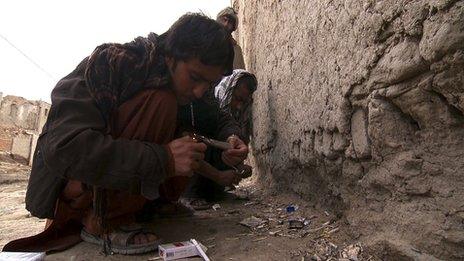
Dealing with drug-related crime is just one of Afghanistan's problems
The poppy crop corrupts much of Afghan life.
Dealing with the crime connected with this low-level drug-taking is only one of the problems Afghanistan faces as the production of poppies goes up again.
A Foreign and Commonwealth Office spokesman said: "The UNODC's prediction of an increase in opium cultivation levels this year is disappointing, but not unexpected given the continuing high opium prices and an improvement in the conditions for growing poppy this year.
"It is critical that the report is seen in the wider context too.
"Counter-narcotics efforts in Afghanistan are relatively young, and experience in other countries shows that tackling the drugs trade is a hugely complex challenge that takes decades and progress is unlikely to be consistent year on year."
The FCO said the UK would continue to support the Afghan government's efforts to tackle opium production, including law enforcement and developing alternative livelihoods for farmers.
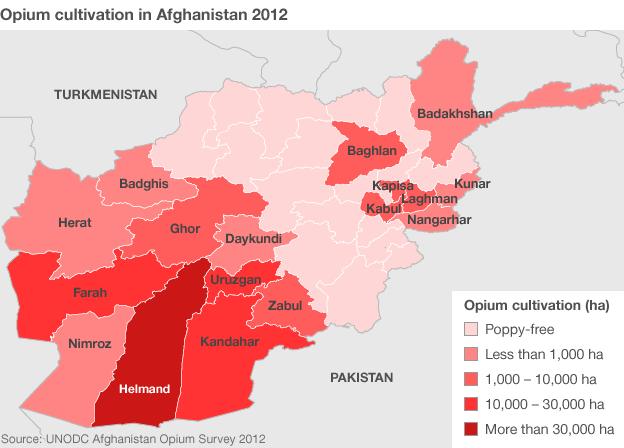
- Published26 February 2013
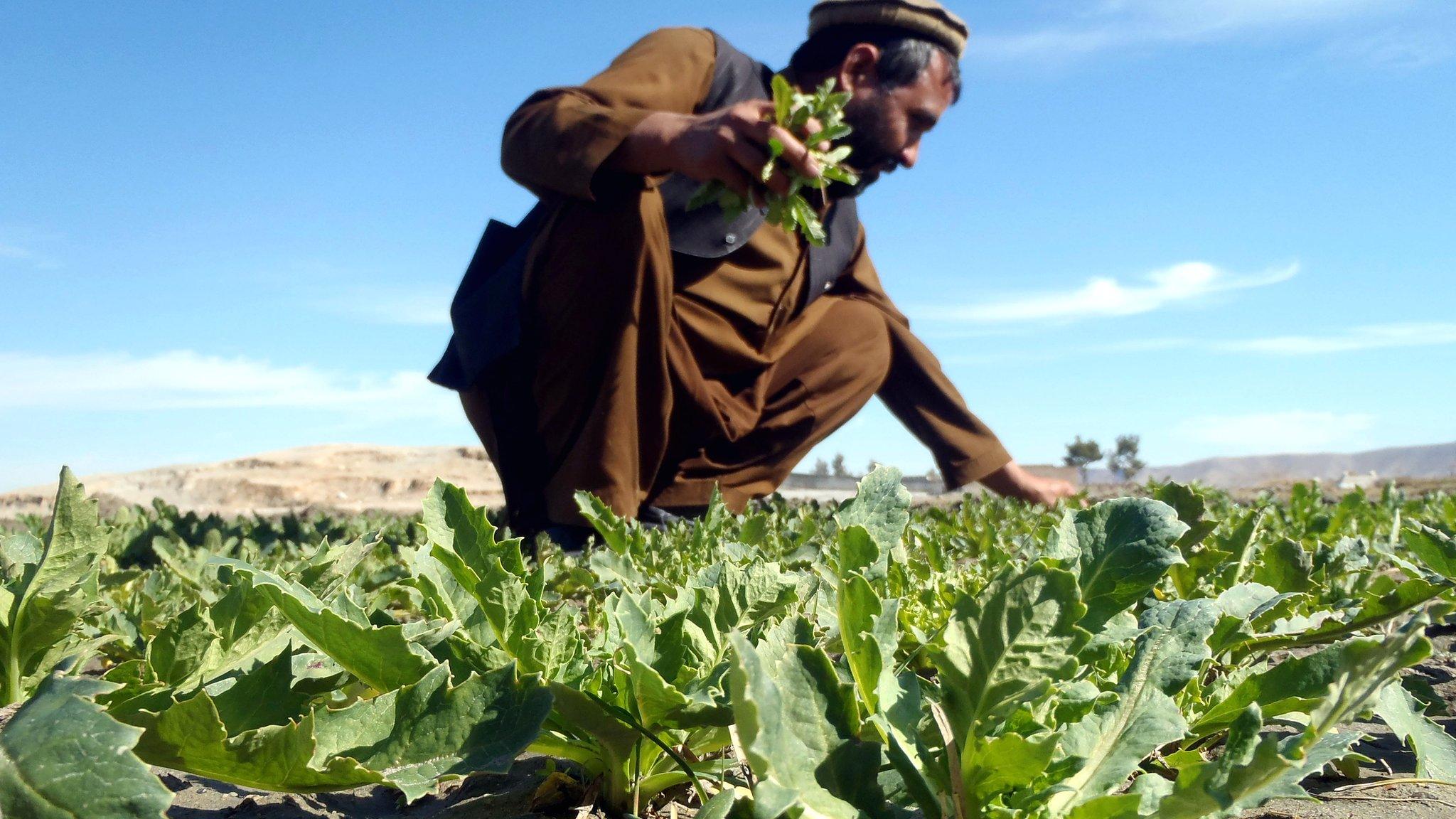
- Published9 September 2019
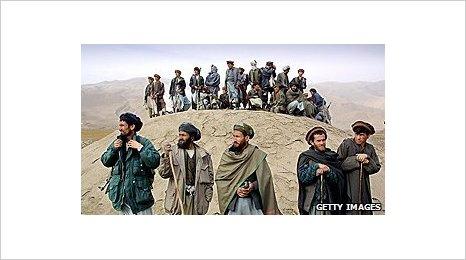
- Published11 April 2013
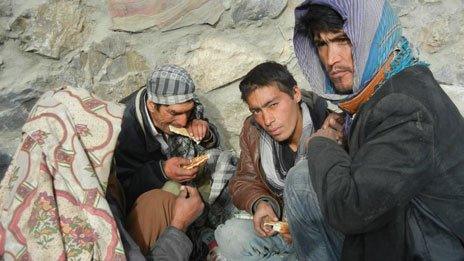
- Published16 January 2013
